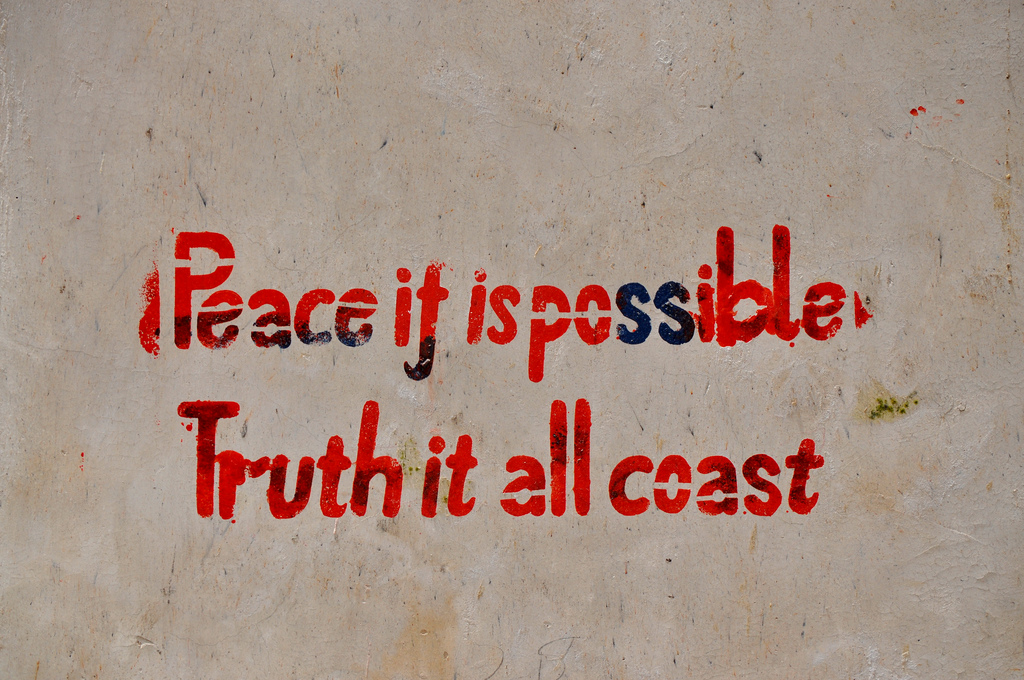
Global Voices Sub-Saharan Africa Twitter Chat celebrates World Poetry Day on March 21, 2018.
To honor World Poetry Day on March 21, 2018, the Global Voices sub-Saharan Africa team will be hosting a Twitter conversation on the theme of “Africa and the Poetry of News.”
In 1999, the United Nations Education, Scientific, and Cultural Organization (UNESCO) declared March 21 World Poetry Day [1] stating: “poetry reaffirms our common humanity by revealing to us that individuals, everywhere in the world, share the same questions and feelings.”
Around the world, poets, cultural workers, writers, linguists, and language lovers everywhere will be celebrating the day with readings, conversations, publications, recitals, and workshops to promote and celebrate the power of poetry to affirm a shared humanity.
Global Voices sub-Saharan Africa Community Manager Nwachukwu Egbunike [2]will moderate the conversation with discussants Amanda Leigh Lichtenstein [3] (United States/Zanzibar), Njeri Wangari Wanjohi [4] (Kenya) and Dami Ajayi [5] (Nigeria).
Lichtenstein (@travelfarnow [6]), a freelance writer and poet, has worked on a variety of literary arts advocacy [7] initiatives in Zanzibar, Ethiopia, and the United States. Wanjohi (@kenyanpoet [8]) is a prolific [9] Kenyan poet and journalist. Ajayi (@ajayidami [10]), a Nigerian medical doctor, recently published his second collection of poems entitled A Woman's Body is a Country. Egbunike, also from Nigeria, is a published poet with a recent poetry collection entitled Blazing Moon.
The chat begins at 7 p.m. (West Africa Time, GMT +2) on Wednesday, March 21 on Twitter using the Global Voices sub-Saharan Africa handle @gvssafrica [11]. The conversation will center around links between journalism and poetry with a special focus on the continent of Africa.
Poets, guardians or prophets?
Are poets merely guardians of poetry or are they possessed by a muse? For many, the poet is a servant of beauty. Yet, others assert the poet as a prophet.
What's the use of fine and flowery words when poets and their communities remain in tyranny's chains? Poets who side with the oppressor do not take advantage of poetry to serve the common good. In a continent dominated by despots, the poet as a truth-teller is not a luxury.
Perhaps the poet is complex: a vessel of beauty as well as an agent of truth.
Can poetry be of service to journalism? In a world of fastidious headlines, how can poetry humanize the news? What can journalists learn from poets, poetry, and ‘poetic thinking'?

Image from Stone Town, Zanzibar. Photo credit: Pernille Bærendtsen. Used with permission.
Africa and the poetry of news
Across the continent of Africa, organizations like Chimurenga [12] and Badilisha Poetry X-Change [13] (South Africa), Soma: Leisure, Culture, and Learning [14] (Tanzania), Kwani Trust [15] (Kenya), The Port Harcourt Book Festival [16], Ake Book Festival, [17] Lagos Book and Art Festival [18] (Nigeria), Hargeysa International Book Fair [19](Somaliland) and Writivism [20] (Uganda) are just a few examples of organizations across the continent dedicated to the promotion of language, literature, and a reading culture.
The last ten years have seen a rise in the number of workshops, festivals, readings, publications and seminars designed to create more robust literary cultures across the continent. Poets and writers actively acknowledge poetry's deep roots on the continent and its unique power to strengthen democracies [21], challenge the status quo [21], and advocate for freedom of speech [22].
Recently, ‘poetry and the news’ made its own headlines with media outlets and organizations exploring the intersection of the two: Nieman Storyboard: Poetry and Narrative Journalism [23]and NPR: NewsPoet: Writing the Day in Verse. [24]
Journalists continue to return to the idea of ‘the poet as witness’, [25] conveying deeper, more nuanced and emotional qualities of stories behind headlines and breaking news.
This and much more will be discussed during the Global Voices sub-Saharan African Tweet Chat.
Note: Amanda and Nwach are part of the Global Voices community as editors and contributing writers.